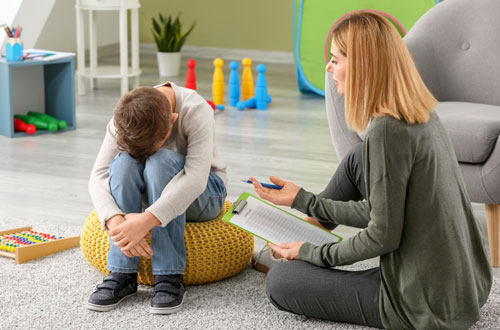Social Communication Disorder
Pragmatics or the rules for social language is another area in which speech and language therapists may work with children. Pragmatics and social communication skills involve using language for specific purposes. This can include initiating, maintaining and ending a conversation, communicating for a variety of purposes such as greeting, informing, demanding, promising, and requesting, sharing ideas and feelings, cooperation for a common purpose, game or problem solving, showing interest in others, engaging in appropriate eye-contact, establishing common ground, taking turns both in play and in conversation, making inferences, using and understanding non-verbal cues, facial expressions, and body language, providing sufficient context to an unfamiliar listener, rephrasing or repeating when misunderstood, interpreting and changing volume, pitch, and intonation based on the environment and communication partner. However, people with pragmatic language disorders or social communication disorders may have difficulties with these areas.

A child with pragmatic difficulties/disorders may use complex language but still have communication difficulties, such as saying inappropriate or unrelated things during conversations, telling stories in a disorganized way or have little variety in their language use and topics. Therapy for social communication skills can be offered both in individual therapy sessions, pair therapy sessions (where appropriate) and in social skills groups (where appropriate).
Do reach out to us if you feel you need to see one of our therapists for advice. The therapist will ensure that your child receives training and consistent practice and feedback in a variety of social situations in order to help him or her develop appropriate skill sets.